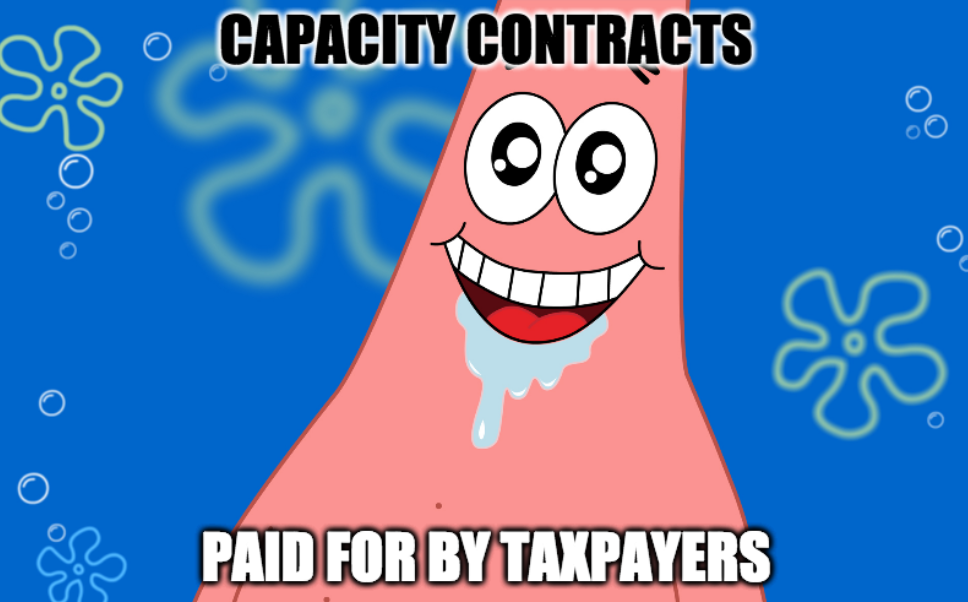Not being able to secure any customers willing to sign contracts to pay to use merchant transmission has been a problem for the speculative merchants that have been pushing to construct hugely expensive boondoggle transmission lines that nobody wants to use. A merchant transmission developer, first and foremost, takes on all risk and must pay for its project with voluntary customers. There can be no backstop funding for merchant transmission, or it's no longer merchant transmission. It becomes transmission with captive customers that must be regulated to protect the customers. It can only charge "cost of service" rates that are subject to inspection and challenge by customers and regulators.
But reality and fairness never stops legislators from making the foolish laws greedy private interests want in order to fill their pockets. It's only our courts that can stop laws that don't make sense, or overreach in some way.
Here's what Invenergy recently had to say about the IIJA's Section 40106 that orders the U.S. Department of Energy to become a "voluntary customer" of merchant transmission that doesn't have enough customers to be financially viable:
Under the Department of Energy’s Transmission Facilitation Program, as envisioned in Section 40106 of the Infrastructure Investment and Jobs Act, the Department of Energy may serve as an anchor tenant on new and upgraded transmission lines, by buying up to 50% of the planned commercial capacity of lines for a term of up to 40 years. Yet, under MISO’s interpretation of Attachment FF and BPM 20, a merchant transmission project with a Department of Energy contract, and meeting Invenergy’s other suggested indicia of being sufficiently advanced stage, would still not be accounted for in MISO’s transmission planning processes unless it had an executed interconnection agreement with MISO or was included in a state or utility IRP. This cannot be a just and reasonable interpretation of MISO’s Tariff and BPM language which requires MISO to “analyze the performance of the Transmission System in meeting both reliability needs and the needs of the competitive bulk power market, under a wide variety of contingency conditions,” to “give full consideration to the needs of all Market Participants,” and consider “a wide range of potential conditions that comply with Federal, State, local and transmission owner reliability standards and public policy mandates . . . as well as other industry trends,” as Invenergy quoted in its Complaint.
And because Invenergy is salivating so hard over Section 40106, I simply have to pop their balloon. The DOE held a public comment period on how it might implement this ridiculous new law earlier this year. The DOE asked for responses to answer a number of questions. Here's one:
Is it advisable for DOE, when selecting eligible projects for capacity contracts, to prioritize projects that have a certain percentage of capacity already subscribed? If so, what should that percentage be? What level of commitment (firm supply versus other types of capacity subscription) should DOE require eligible entities to demonstrate to be selected for a capacity contract? How should applicants be required to document such commitments? Should DOE's capacity be capped as a ratio of the firm subscription obtained before the execution of a capacity contract? If so, what should that ratio be?
Meanwhile, Invenergy asks Missouri and Illinois (and later Kansas and Indiana) to give them permits and eminent domain authority to take land from the good citizens of those states in order to build a transmission line that nobody may ever use. That's not a "public use." Until GBE has real customers (not obligations to pay for absolutely nothing from DOE) it's not a public use. And Grain Belt Express/Invenergy completely fails to mention any of this to the state regulators! Invenergy just keeps talking about "need" and other meaningless platitudes.
What else did Invenergy have to say in its forbidden Answer to an Answer at FERC? This very short fictional story caught my eye:
MISO TOs cite to the Rock Island Clean Project as an example of why advanced-stage merchant transmission should not be accounted for in MTEP/LRTP base case analyses. However, the Rock Island project never had final, non-appealable permits in any state. See Illinois Landowners Alliance, NFP v. Illinois Commerce Comm’n, 2017 IL 121302 (2017) (finding that the owner of the proposed merchant transmission project was ineligible under Illinois law to obtain a required certificate of public convenience and necessity). Rock Island subsequently discontinued efforts in neighboring Iowa in light of the Illinois developments. In contrast, Grain Belt Express has final, non-appealable permits in Kansas, Missouri and Indiana. Although Grain Belt Express is making minor modifications to those permits approvals, which is typical for new project development, the underlying approvals are sound and Grain Belt Express has significantly advanced the development of the project since securing those permits including securing rights of way and land.
When the new laws greedy corporations make don't work with the fundamentals of regulation, it's nothing but a hot mess where nothing gets accomplished. Drool all you want!

 RSS Feed
RSS Feed